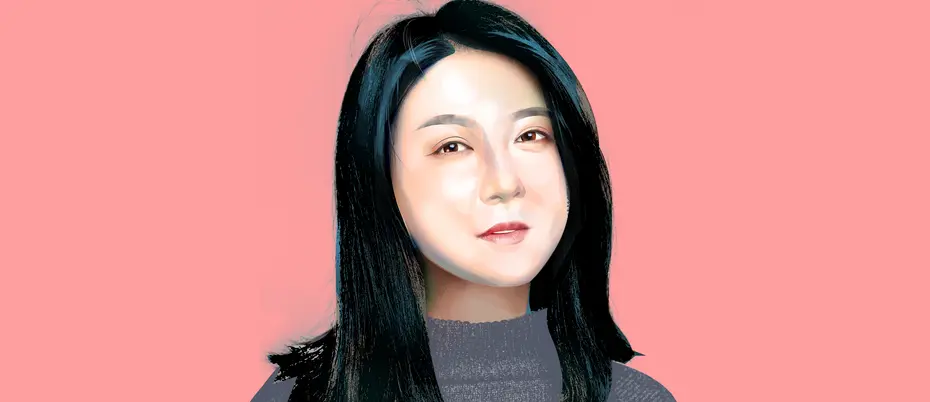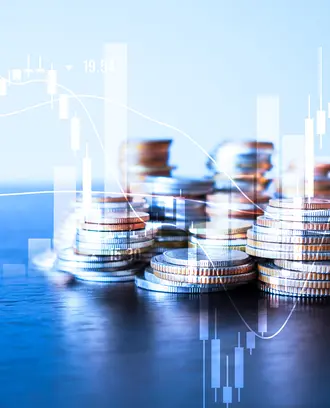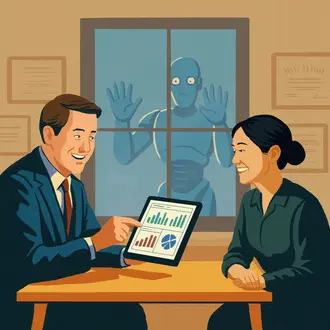Finance
Hedge fund success, then a pivot with purpose
After trading billions a day at Domeyard, Christina Qi is building Databento to help democratize the financial industry.
The short version of the Domeyard origin story: Undergraduates at MIT and Harvard band together in an MIT dorm to build a high-frequency trading hedge fund. Christina Qi, SB ’13, and her two co-founders set up in Boston and are soon making billions in trades each day.
The firm’s early days are now the subject of a Harvard Business School case study and Qi guest lectures at MIT Sloan. She’s in-demand as a speaker and donates most of her fees to charity.
But although she’s a trader, Qi is also an entrepreneur. Last year she started Databento, a response to the problem of unreliable data she confronted at Domeyard. After years “making billionaires richer,” she wanted to offer a product that made the financial industry accessible for all types of customers. We asked her how she develops and works with ideas.
What inspires you?
When I first entered the financial industry as an [MIT Sloan] alum, I felt the cognitive dissonance of working in high frequency trading, but wanting to make a difference in my community. No matter how much I tried, the two ideas were mutually exclusive. At the time, I told myself, “You're $40,000 in debt. It's a competitive industry, and no one else would hire you anyway. You need the money.” Ironically, when I launched my hedge fund, we made $40,000 in an hour. Eight years later, we traded $7.1 billion dollars per day, but as I rose up in the hedge fund world, I lost my purpose in life. In a career where I'm literally making billionaires richer, I had lost the sense of curiosity and direction that we experienced while at MIT.
During a particularly rough year, my former classmates inspired me to take a break and evaluate my career trajectory. After paying off my debts, I was in a position of privilege, and I could either continue my current path or use my experience to do something positive. I was inspired by my friends to step away from the fund and launch a new venture to help democratize the financial industry. I'm also inspired by many incredible companies with the same mission in mind. Finance is a huge industry, and advocating for change is a team mission.
Where do you get ideas?
Good ideas come from poor experiences. When launching my first company in college, we were often the smallest and youngest customer in the room. Lawyers, accountants, and brokers often rejected us, because they had bigger clients to deal with. A great way to vet a company is to see how they treat their lowest-paying client.
As we prepared to launch Databento's market data products, we made a conscious effort to listen to our smallest customer. Data can be intimidating and hard to understand; how can a non-technical user assess its accuracy and usefulness? How can we make finance a more accessible industry for everyone?
Every idea boils down to some form of "How can we make a positive impact?”
Who do you share new ideas with?
I love sharing ideas, even if they might not become a reality. Sometimes, if I’m faced with conflicting ideas, I ask for opinions on Facebook, Twitter, LinkedIn, or the MIT Venture Mentoring Service email forum. As entrepreneurs often say, ideas are worthless — it’s the execution that matters. But discussing ideas can be fun, meaningful, and rewarding too! It’s important to understand not just the monetary value, but the societal impact of an idea before pursuing it too heavily.
When do you know it is time to abandon an idea?
On the Myers-Briggs indicator, I changed from a “thinker” to a “feeler” over time. I’ve learned to not just look at the numbers, but to also trust my gut. Sometimes, an idea meets the technical criteria that you’re looking for, but it just doesn’t feel right. If other people have the same gut feeling, then as an entrepreneur it’s time to revise or move on from that idea.
What was your worst idea?
I think we’ve all experienced the consequences and learned our lessons from terrible ideas. But it’s the indecision paralysis — perhaps from having too many ideas, too many options — that can break a business or prevent you from doing anything. While launching Databento’s market data products, we received tons of “maybe” signals from users, but no strong “yes” signals. So we explored a myriad of options, but realized that we were overthinking and doubting ourselves.
Once we changed our messaging to clearly state how our market data is critical for quants, stressing its accuracy, usefulness, no yearly commitment, and transparent pricing, we received a flood of strong “yes” signals.
What's the biggest idea you are working on right now?
I’m excited for Databento to launch and join a growing number of companies breaking down the barriers in finance. When I started my hedge fund, Domeyard, we wasted millions of dollars on data and infrastructure. Databento is the product that we wish we had when launching our fund.
Personally, I am writing a memoir about the reality of starting a billion-dollar volume hedge fund. I grew up on food stamps and had a twisted view of money. Although my professors told me to go out there and do something good for this world, I ended up as a Wall Street sellout — a finance snake, literally making the world’s billionaires richer. Through FBI interrogations and ethical dilemmas, my book explores the consequences of chasing alpha.
At MIT Sloan, we talk about ideas made to matter — ideas that are carefully developed and have meaningful impact in the world. In that context — what is your idea made to matter?
During this time of unrest, it’s important to use our privilege to help those who are suffering, regardless of your income level. Even while unemployed, many of my former classmates donate time, money, and experience to the causes that they care about. When you take action, you are showing your Black and minority friends that you care. That you mourn and fight with them against systematic oppression. When you stand up against an injustice, you could potentially be saving someone’s life.




